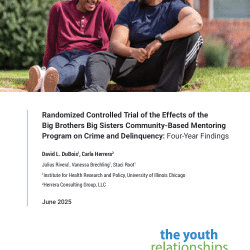
Jon Baron
@JonBaronforMD
Followers
2K
Following
364
Media
268
Statuses
2K
Founder & President, Coalition for Evidence-Based Policy. Fmr candidate for MD governor, Evidence VP @Arnold_Ventures, Chair of Nat'l Bd for Education Sciences.
Bethesda, MD
Joined February 2021
I’m excited to announce the launch of No-Spin Evidence Review - a new online publication of the Coalition for Evidence-Based Policy. We summarize recent program evaluations & explain what the evidence really shows. See example below & check out No-Spin at
2
28
97
7/ Here's our No-Spin report: Here's the published study:
journals.sagepub.com
Future Forward leverages both tutoring and parent engagement to support the literacy development of early primary students. In 2010, Future Forward was awarded ...
0
0
0
RT @ALeighMP: What can a German bakery teach us about better government? Hint: it’s not strudel. My op-ed on the power of randomised trials….
0
24
0
RT @JohnArnoldFndtn: A study on a UBI pilot in Oakland shows how research can be presented to reflect the authors’ biases rather than provi….
0
104
0
11/ Disclosure: Arnold Ventures, which funds No-Spin Evidence Review, funded this RCT. Here's our No-Spin report: Here's the posted study:
indigo.uic.edu
This document reports 4-year follow-up findings from a randomized controlled trial of Big Brothers Big Sisters of America's Community-Based Mentoring program involving 1,353 youth. Outcomes are...
0
0
4




